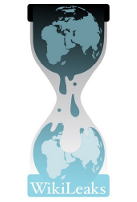Today South Africa is celebrating Human Rights Day. We’re celebrating the long road to democracy covered with sticks and stones leaving apartheid’s oppression behind us. The path we’ve tread has been a long one, but 18 years into our democracy we enjoy rights many others around the world are still denied. Freedom of speech and media freedom are some of the most important rights we’ve gained.

Internet censorship is one arm of media censorship. (image: bestvpnservice.com)
However, if you look at Reporters Without Border’s annual freedom index released earlier this month, many African governments still deny democratic media coverage. Many journalists cannot report openly on what is happening in their country.
Technology could play a crucial role in helping journalists get the message out of what is happening in their countries. That’s why we’ve compiled a list of five programs journalists can use to get their stories out:
This email service allows you to send emails without the government monitoring your actions as the connection is encrypted. Journalists need safe and secure access to correspondents abroad if they want international media coverage of possible local atrocities.
Government official knocking on your door as you’re working on a confidential file? Eraser allows journalists to secure delete files and invisible recoverable files from their computer should their laptop be seized.
This Mozilla Firefox-based browser allows users a secure tunnel to the internet, hiding your digital online identity in case you’re being monitored. There’s a portable edition available which users can run from a flash drive.
This program works on the same basis as file-sharing program Dropbox. Running in the background, users can quickly and effectively back up their data. Journalists can encrypt and decrypt files with this program if ever confidential files were to get ‘lost’.
Free open-source instant messenger allows users to connective to several instant messaging accounts and services. However, with the Off-the-Record (OTR) plugin, journalists can chat online with others truly ‘off-the-record’ as you enjoy a secure connection.
Nico Gous




































